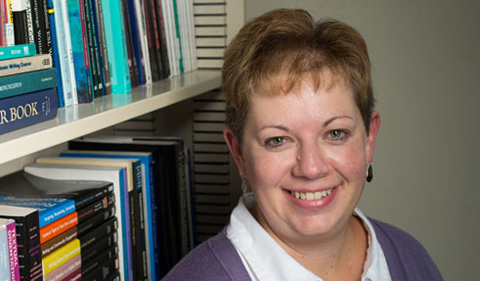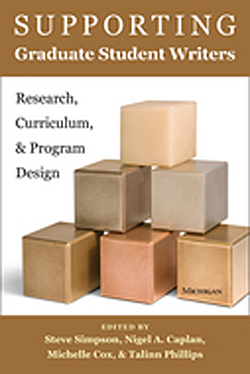
Dr. Talinn Phillips
Dr. Talinn Phillips, Assistant Professor of English, co-edited Supporting Graduate Student Writers: Research, Curriculum, and Program Design, which was published by University of Michigan Press this summer.
The goal of this collected volume is to explore roles that L2 writing specialists, IEP directors and instructors, writing center administrators, and others within writing studies might play in potential cross-campus dialogues on graduate student writing support.
 This book is designed both for writing studies researchers interested in new directions for graduate writing research and for practitioners or program directors looking for practical directions for their own programs. It includes a diverse chorus of voices on graduate writing support—both seasoned, well-known researchers in second language writing and composition studies and fresh new voices and perspectives.
This book is designed both for writing studies researchers interested in new directions for graduate writing research and for practitioners or program directors looking for practical directions for their own programs. It includes a diverse chorus of voices on graduate writing support—both seasoned, well-known researchers in second language writing and composition studies and fresh new voices and perspectives.
Part 1, Graduate Writing: What Do We Know? What Do We Need to Know? looks at graduate writing support internationally, laying out what these courses and programs look like currently, what gaps exist in current program design, and what future work is needed.
Part 2, Issues in Graduate Program and Curricular Design, explores the nuts and bolts of graduate writing support at both the classroom and program level. While this section does feature specific programs offered from a variety of academic units—IEPs, English or communication departments, writing centers, etc.—the goal is to focus more on principles of design and concerns (academic, administrative, budgetary, etc.) to consider in one’s own institutional setting.
Part 3, Program Profiles, is a response to the request from many within the graduate writing community for more published examples of successful program models. The volume includes five programs from around the world that highlight particular ways programs were developed to meet specific institutional needs—the University of Delaware, the University of Toronto, the University of New South Wales, Chalmers University of Technology in Sweden, and Yale University. The volume ends with reflections on some of the emerging themes and strategies and tips for programmatic responses to graduate student needs.



















Comments